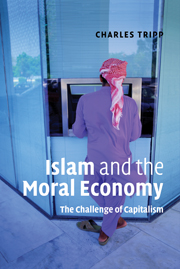1 - The ‘social problem’
Published online by Cambridge University Press: 08 January 2010
Summary
The developments in this chapter are bracketed by two distinctive phases of European imperialism in the Middle East, North Africa and Asia: first as intrusive power, bringing into local worlds the material and imaginative forms that made European imperialism such a formidable global force in the eighteenth and nineteenth centuries; second as retreating power, leaving behind states based on colonial creations, tied to a global economic system reflecting the values and interests of the departing imperial states. Between these two ragged events the peoples subjected to the forces unleashed thereby tried to understand what was happening to them and to their communities, impelling them to respond in ways that would allow them to engage with a world in the process of creation.
Most prominently, the response to these developments was articulated by those in charge of the states and empires which confronted European power as a threat to their political and military security. In the Ottoman Empire in the eighteenth century, for instance, it was initially thought that adopting European military technologies would be enough to guard the realm from further encroachment. This proved to be illusory. However, the very failure of this approach, painfully visible in the military reverses of the empire during this period, gave heart to tradition-minded critics of reform. They had argued perceptively that technology, far from being neutral, would bring with it changes in attitudes and ethics that would threaten the core of the Ottoman Islamic order.
- Type
- Chapter
- Information
- Islam and the Moral EconomyThe Challenge of Capitalism, pp. 13 - 45Publisher: Cambridge University PressPrint publication year: 2006



